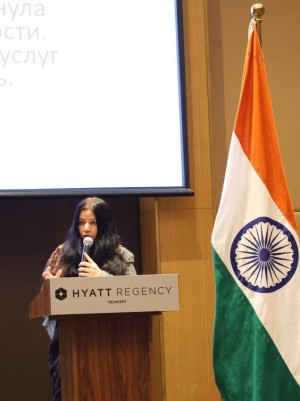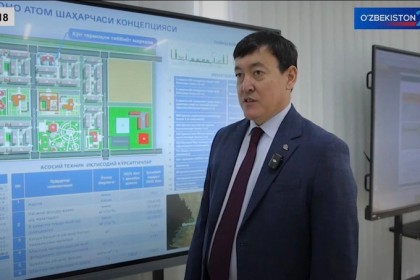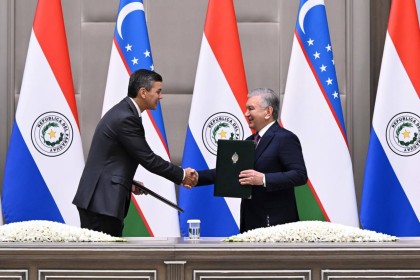On 20 October 2018 the Government of Uzbekistan adopted the resolution “On measures to Implement the National Goals and Targets in the Field of Sustainable Development for the Period Until 2030.”
The Sustainable Development Goals (SDGs), otherwise known as the Global Goals are a universal call to action to end poverty, protect the planet and ensure that all people enjoy peace and prosperity. The Goals were endorsed by all UN member states, including Uzbekistan, in September 2015. They comprise 17 goals and 169 targets to be reached by 2030, which will be measured by more than 200 indicators.
“The UN commends Uzbekistan’s adoption of its national goals and targets. This step confirms that Uzbekistan’s ongoing 5-year reform agenda is strongly aligned to the ambitious targets for 2030 agreed under the Global Goals. The resolution provides a practical impetus to accelerate ongoing transformations across all five pillars of the Action Strategy, and to ensure their sustainability over the longer-term” said Helena Fraser, UN Resident Coordinator in Uzbekistan. “I firmly believe that this is an important step in promoting prosperity and dignity for all in Uzbekistan.”
The signed document sets 16 national sustainable development goals and 127 related targets for 2030. It also envisages preparation of regular national reports on implementation of SDGs in Uzbekistan, as well as gradual integration of sustainable development goals into the state development programmes and budgets of Uzbekistan. Oversight of the national SDGs will rest with Deputy Prime Minister/Minister of Finance, Mr. J. Kuchkarov.
The national SDGs envisage a set of concrete goals and targets in the economic, social, and environment dimensions. For example, in the economic and livelihoods area, they envisage a significant decrease in poverty rates in Uzbekistan, a significant increase in per capita GDP, and significant reduction in youth unemployment rates by 2030.
In social area, some important targets include decreasing maternal mortality rate by 1/3, child mortality - by half, as well as a 30% decrease of deaths from non-communicable diseases (such as cardiovascular diseases, cancer, diabetes, and chronic respiratory diseases) by 2030. In addition, there is a target to ensure inclusive and equitable quality education and lifelong learning opportunities for all.
In energy and environment areas, the resolution confirms the commitment to increase substantially the share of renewable energy in the country’s energy mix by 2030, and substantially reduce waste generation through prevention, reduction, recycling and reuse.
To provide a solid foundation for the reforms in the above areas, they must be underpinned by a sound governance and human rights system, which the national SDGs also cover. For example, in the governance and rule of law areas, national targets aim at reducing corruption, increasing efficiency, transparency and accountability of state bodies at all levels, as well as increasing citizen participation in decision-making.
“The United Nations in Uzbekistan, together with United Nations entities operating at global and regional levels, is committed to support the Government of Uzbekistan in implementing the provisions of the resolution on SDGs. In signing the Resolution, the Government of Uzbekistan has re-confirmed its strong commitment to collaborate on advancing human development in line with the principle of leaving no one behind. This means that the specific needs and aspirations of everyone — including the most vulnerable people —will be addressed as the country takes decisive steps to build a more prosperous, resilient and sustainable society by 2030.” Helena Fraser noted.















